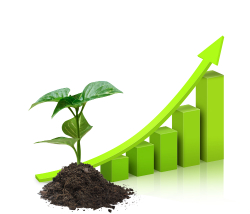Novel modelling tools to tackle the challenges of promoting sustainable lifestyles in Europe
With this in mind, the EU-funded GLAMURS (Green lifestyles, alternative models and upscaling regional sustainability) project adopted an alternative approach to creating sustainable lifestyles to help reduce the global ecological footprint while increasing overall well-being. 'The overall aim was to develop an understanding of the main obstacles to and prospects for transitioning towards sustainable lifestyles and a green economy in Europe, and the most effective means to support and speed up these shifts,' says project coordinator Dr Adina Dumitru from the People-Environment Research Group at the University of A Coruña in Spain. 'We considered the dynamics of lifestyles, the conditions under which economic systems are transformed and the policies that might enable a sustainable transformation in order to support policymakers, businesses and citizens to make knowledgeable choices towards a sustainable future.' GLAMURS developed a comprehensive framework of lifestyle choices, dynamics and interactions so that relevant stakeholders can adopt informed decisions towards the scaling up of sustainable lifestyles in Europe. To support policymaking, the project made robust recommendations for governance design and policy mixes for sustainable lifestyles and a green economy at European and regional levels. Researchers studied and compared seven European regions and six lifestyle domains that are relevant to sustainability. This was done to understand the regions' characteristics and their potential for shifting to sustainable lifestyles and green economies. 'The project indicated how the lifestyles of sustainability innovators could inspire regional actors to change political circumstances so that transitions to sustainable regions will become reality,' notes Dumitru. 'The decision to spend time on sustainable activities depends on our aspirations and identity, and the social norms prevalent in each context.' Research supported the fact that sustainable lifestyles do not necessarily conflict with the pursuit of individual well-being, societal wealth and economic green growth. 'On the contrary, people seeking sustainability report increased well-being in the long run, and they express a desire to change their life in a more sustainable direction,' explains Dumitru. 'These wishes require the support of institutions and authorities at local, national and European levels in order to turn them from simple aspirations into well-established habits and shared behavioural norms in the larger society.' The project created a series of integrated models that assessed different lifestyle change circumstances, alternative economic approaches and sustainable transitions. Results support the assumption that a more shared adoption of sustainable lifestyle choices would also be socially and economically sustainable in the medium and long term, in line with green economic growth scenarios. 'We also show that policy interventions have to tackle the interaction between determinants of sustainable lifestyles at different levels,' adds Dumitru. 'Psychological factors that might support the adoption of sustainable lifestyles at individual levels interact with factors affecting large group diffusion of these lifestyles to create particular social ''tipping points'' for which policy interventions are particularly promising.' Even though the project ended in December 2016, dissemination events are being planned in each region. Several partners have invited various stakeholders to engage in a debate on the implications of GLAMURS' results for regional development. Professor Ricardo García Mira, former project coordinator and current Spanish Parliament member, is involved with Spain's Commission on Climate Change. He championed a bill on the promotion of sustainable lifestyles in Spain that relied on the GLAMURS approach and results. Dumitru believes GLAMURS will accelerate the shift towards a sustainable society in line with Europe 2020 goals and beyond. 'We fully expect the project to leave a positive and lasting legacy for smart, sustainable and inclusive growth at local, national and European levels.'
Keywords
Sustainable lifestyles, green lifestyles, GLAMURS, regional sustainability, green economy



